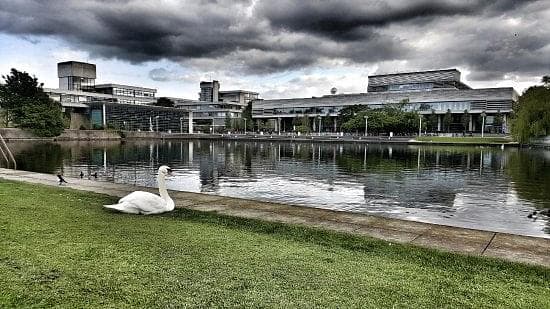A range of taught modules is currently available from the following specializations:
-
Genetics & Cell Biology: investigates cellular signalling, architecture, imaging, trafficking and transport, genetic basis of disease, model organisms, epigenetics, etc.
-
Microbiology & Infection Biology: investigates mechanisms of pathogenic micro organisms, host response to infection, immunopathologies, host-pathogen interactions, development of diagnostics, applied microbiology, etc.
-
Biochemistry & Synthetic Biology:investigates metabolism and disease, protein-protein interactions, cell signalling, protein structure and analysis.
Negotiated Learning is a process where a student and academic discuss the components of a qualification required to meet the student's stated goals. In the context of this MSc programme, students will discuss which 40 credits of taught components are appropriate, relating to their current strengths and weaknesses, and their future career goals in industry or academia. The MSc in Biological and Biomolecular Science is the first of its kind offered in Ireland by Negotiated Learning.
Core Laboratory Research Skills (30 credits across three semesters): including techniques such as RT-PCR, Western Blotting, and imaging studies. Research skills modules will be conducted in a dedicated Research Skills lab in the UCD Conway Institute and the new facilities in the O'Brien Centre for Science
Core (taught) Professional Skills Modules (20 credits):
-
BIOL40540 Data Management and Interpretation
-
BMOL40150 Career Development Scientists
-
BIOL40550 Science Writing and communication Skills
-
BIOL40390 Quantitative Tools for the Life Sciences
-
Optional Taught modules (40 credits)
-
involves selecting one of the following specialisations and selecting specific modules within these that meet the student's learning objectives (indicative module list is not exhaustive, and is subject to change)
-
Genetics & Cell Biology
-
GENE30010 Genetics and Recombinant DNA
-
CELB30130 Cell Biology of Disease
-
CELB40190 Advanced Cancer Cell Biology and Genetics
-
Microbiology & Infection Biology
-
MICR30030 Microbial Physiology
-
MICR30040 Microbial Diversity and Growth
-
MICR30070 Skills in Microbiology
-
MICR40050 Microbiology of Foodborne Pathogens
-
MICR40150 Host Pathogen Interaction (online)
-
MICR30020 Microbial Cell Factory
-
MICR30060 Pharmaceutical and Food Microbiology
-
MICR40040 Microbial Pathogenicity
-
MICR40060 Microbial and Mammalian Cell Bioprocessing
-
ENVB40480 Applied Microbial Ecology
-
Biochemistry & Synthetic Biology
-
BIOC30010 Metabolism and Disease
-
BIOC30090 Proteins and Enzymes
-
BIOC40070 Protein Structure and Analysis
-
BIOC40080 Biochemical Research Strategies and Problem Solving
-
BIOC30030 Biochemist’s Toolkit
-
BIOC40160 Drug Development & Clinical Trials
-
BIOC40220 Hot topics in Biochemistry
-
MICR40070 Enzyme Technology and Protein Engineering
-
Multi-Disciplinary
-
BIOL40560 Biological Imaging
-
GENE30040 Introduction to Programming for Biologists
-
CELB40160 HCS Microscopy
-
MICR40080 Microbial Natural Product Biosynthesis
-
BIOL40840 Applied Bioinformatics
-
ZOOL40300 Epithelial Transport in Animal Physiology
-
CELB30090 Advanced Cell Biology
-
CELB30100 Developmental Biology
-
CELB40030 Programmed Cell Death in Plants
-
CELB40180 Cell Biology & Genetics of Ageing
-
CELB40200 The RNA World
-
GENE30020 Genome Structure and Evolution
-
GENE30030 Genetic Basis of Disease
-
GENE40040 Model organism genetics: a modern experimental approach
-
GENE40050 Human Genetics & Disease
